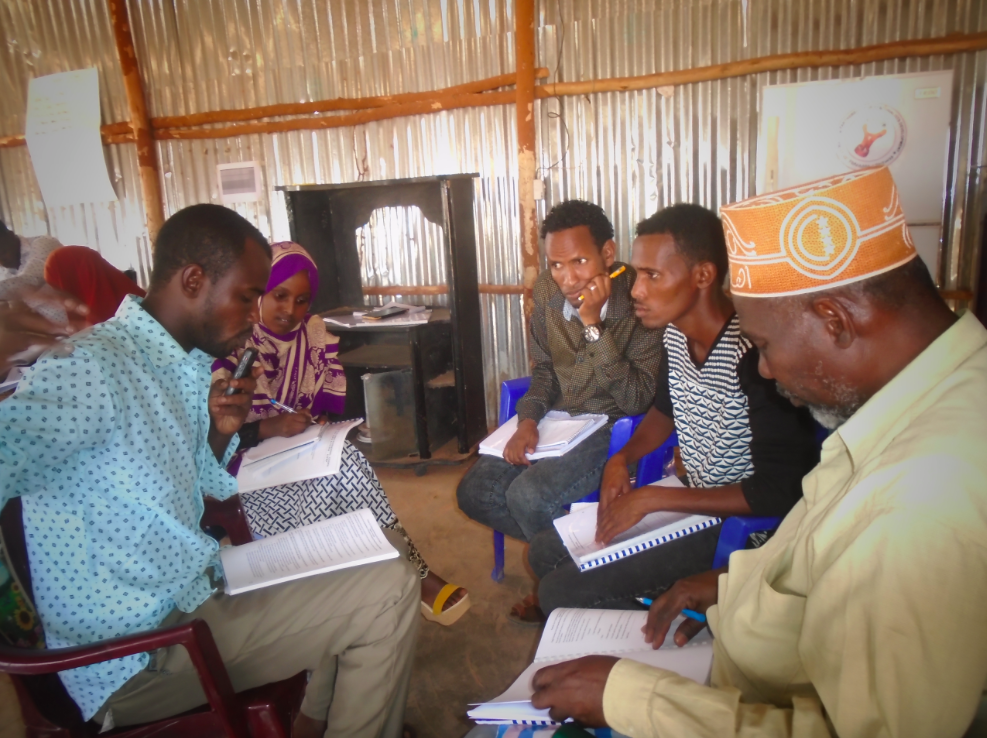Shaping the future: Our strategy for research and innovation in humanitarian response.

Shaping the future: Our strategy for research and innovation in humanitarian response.


As has been indicated in the previous reports, the project team has collected sixty hours worth of qualitative data from the field, transcribed the data, and translated all Somali documents to English. Currently the data is being coded and analyzed, and will be used to inform the curricula development process.
Our team of experts conducted a logic model development workshop in New York in March 2017. The technical experts include some who flew from Ethiopia, others from Paris, and who worked together during a two-day workshop to adapt/ develop elements of the theory of change logic model required for the intervention.
Three sets of theory of change logic models are in development to be used by the intervention (one for the men-only group, another for the women-only group and the third one for the couples group). The team exhaustively discussed areas that would only require minor modification from the Butajira curricula, areas that would require significant changes and areas that require new content. From the ongoing qualitative data analysis, we have identified that there are specific adaptations to be made relevant to the refugee setting.
In total, we outlined three health goals including to decrease the prevalence and intimate partner violence (IPV), fifteen sets of behavior outcomes, and more than two hundred knowledge, attitude, belief, skills and peer norms related determinants that are linked to the health goals (see list). The team is working tirelessly to refine this and the next step will be to identify relevant activities that will challenge and question the negative determinants; reinforce the positive ones and build knowledge and skills among intervention participants.
The team has also devised strategies to document the adaptation process in order to generate lessons learned. A total of sixteen sessions per curricula will be finalized using the qualitative data and the intervention will be pre-tested within the Somali refugee community. Lessons gained will then be used to refine the final intervention to be pilot tested in the near future.
By Samuel Tewolde
Intervention Specialist for Emergency Operations
WAHA International-Ethiopia

 Please upgrade your browser
Please upgrade your browser
You are seeing this because you are using a browser that is not supported. The Elrha website is built using modern technology and standards. We recommend upgrading your browser with one of the following to properly view our website:
Windows MacPlease note that this is not an exhaustive list of browsers. We also do not intend to recommend a particular manufacturer's browser over another's; only to suggest upgrading to a browser version that is compliant with current standards to give you the best and most secure browsing experience.